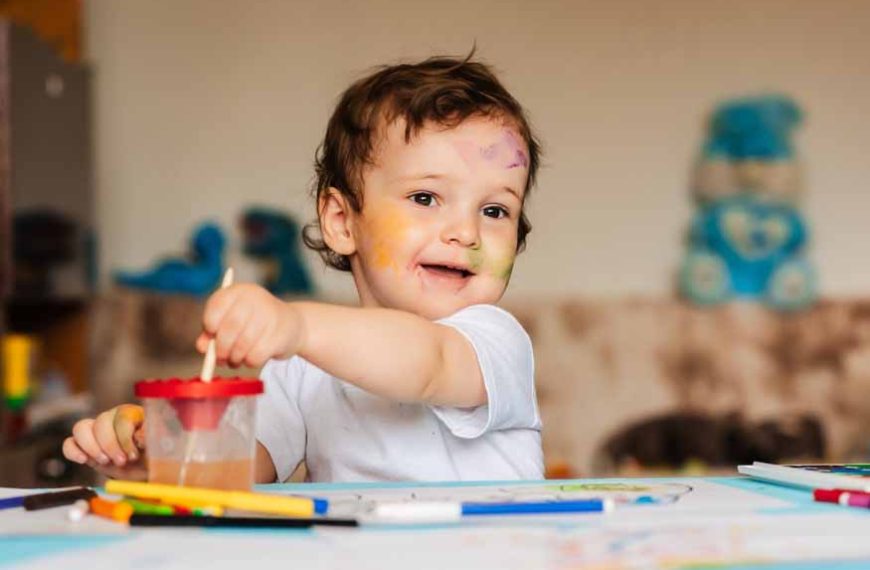In today’s fast-paced world, parents often find themselves considering the appropriate age for their children to start engaging in various activities. From music classes to sports and arts, the choices are vast, but the question arises: at what age should children begin these endeavours? In this article, we will explore the significance of early engagement, the benefits it offers, and useful insights into age-appropriate activities.
The Early Years: Exploration and Play
In the early stages of childhood, play is the primary mode of learning. From building blocks to finger painting, children start to develop essential motor skills, creativity, and social interactions. There is no strict rule, but most experts agree that encouraging activities like these as early as toddlerhood can lay a solid foundation for later development.
Kids who engage in imaginative activities in safe environments might acquire knowledge about their feelings, interests, and situational awareness. When children engage with each other during play, they are given the opportunity to learn how to communicate with others and behave in different social settings.
The Importance of Age-Appropriate Activities
As kids grow, so does their ability to engage in more structured activities. It is crucial to choose age-appropriate pursuits that align with their cognitive and physical development. Tailoring activities to their developmental stage ensures a positive and enjoyable experience.
- Infancy (0-2 years)
- Early Childhood (3-5 years)
- Middle Childhood (6-11 years)
During this stage, activities focus on sensory experiences, such as soft toys and colourful visuals. Parental interaction plays a crucial role in laying the groundwork for future engagement.
As children enter preschool age, structured activities like storytelling, simple crafts, and basic games become suitable. These activities promote creativity and motor skills.
At this stage, children can delve into more complex activities, including sports, music lessons, and educational clubs. Tailoring activities to individual interests is key.
Benefits of Early Engagement
- Cognitive Development:
- Social Skills:
- Emotional Well-being:
Engaging in activities at a young age enhances cognitive functions. Activities like puzzles, storytelling, and educational games stimulate a child’s brain, laying a foundation for academic success.
Participating in group activities promotes the development of social skills. Children learn to share, communicate, and collaborate, essential elements for building healthy relationships.
Early engagement provides a channel for emotional expression. Activities like art and play allow children to express themselves, aiding in emotional regulation.
How to Engage Kids in Activities?
- Make It Fun:
- Provide Choices:
- Outdoor Exploration:
- Use Technology Wisely:
- Rotate Toys and Materials:
- Emphasise Process Over Product:
- Incorporate Storytelling:
- Introduce Challenges:
- Inspire Questions:
- Host Theme Days:
- Promote Reflection:
Use an element of fun in activities. Turn to learn into a game, use colourful materials, or incorporate playful elements to make the experience enjoyable. When kids associate activities with joy, they are more likely to participate willingly.
Offer your child a selection of activities to choose from. This empowers them to make decisions and encourages a sense of independence. Having a say in what they do fosters a positive attitude towards engagement.
Take advantage of outdoor spaces. Nature offers a rich environment for exploration and play. Whether it is a simple nature walk, a trip to the park, or gardening, outdoor activities provide unique sensory experiences and immense opportunities for learning.
Leverage technology as a tool for engagement. Educational apps, interactive games, and online resources can be valuable supplements to traditional activities. However, ensure screen time is balanced and age-appropriate.
Keep a variety of toys and materials accessible, but consider rotating them periodically. This helps maintain interest and curiosity as children rediscover forgotten items, sparking new waves of creativity.
Focus on the process of engaging in activities rather than solely on the end result. This approach promotes a love for exploration and learning, emphasising the value of effort and creativity rather than just the final outcome.
Weave storytelling into activities. Whether it is creating a narrative for a drawing, acting out scenes, or inventing characters, storytelling enhances imagination and language skills while making the activity more engaging.
Gradually introduce challenges to activities. This could involve puzzles, problem-solving tasks, or setting achievable goals. Overcoming challenges boosts confidence and instil a sense of accomplishment.
Facilitate an inquisitive mindset by encouraging your child to ask questions. Engage in conversations about their interests, and explore answers together. This not only promotes critical thinking but also strengthens the parent-child bond.
Make activities more exciting by incorporating theme days. Whether it is a science-themed day with experiments or a creative arts and crafts day, themed activities add extra fun and anticipation.
After an activity, take time to reflect together. Discuss what they enjoyed, what they learned, and any ideas they might have for future activities. Reflection enhances the learning experience and encourages a growth mindset.
Listening to Your Child’s Cues
While developmental milestones provide a general guide, every child is unique. Paying attention to your child’s cues and preferences is important. Some may thrive in team sports, while others may prefer solo pursuits like writing or painting.
Open communication and flexibility in allowing them to explore various interests can lead to a more fulfilling journey for both parent and child. The key is to balance structured and unstructured play, align activities with their developmental stage, and listen to their evolving interests. Ultimately, the goal is to foster a love for learning, creativity, and personal growth in a supportive and nurturing environment.
The Role of Schools and Educational Programs
Schools and educational programs play a pivotal role in integrating activity-based learning approaches that support academic and social development. In the dynamic landscape of childhood development, parents often seek the perfect balance between structured activities and rampant play. Eurokids, a renowned play school, stands as a beacon in fostering early engagement that aligns seamlessly with a child’s developmental needs. Enrol now to set your child on a path to greatness.
Frequently Asked Questions
Q1: What are suitable activities for toddlers to engage in?
Toddlers benefit from activities that promote motor skills, sensory exploration, and social interaction, such as playing with soft toys, building blocks, or engaging in simple arts and crafts.
Q2: When is the right time to introduce organised sports to a child?
Around the age of 3 to 4, children can start exploring basic sports activities like soccer, focusing on fun and fundamental movement skills.
Q3: Can screen time be considered a constructive activity for children?
While limited and age-appropriate screen time can have educational value, it is essential to prioritise real-world experiences and face-to-face interactions for optimal development.
Q4: How can parents identify a child’s talents or interests early on?
Pay attention to a child’s reactions during different activities, observe where their curiosity lies, and encourage exploration in various fields to discover their natural inclinations.
Q5: Is it ever too late to introduce a child to a new hobby or activity?
No, it is never too late. Children can develop new interests at any age. The key is to be patient, and supportive, and allow them to explore diverse options until they find something they enjoy.
Q6: How can parents strike a balance between academics and extracurricular activities?
Prioritise a balanced schedule that allows time for both academics and extracurricular activities. It is crucial to avoid o verwhelming a child with too many commitments.
Q7: Are there any activities that can help improve a child’s focus and attention span?
Activities like board games, puzzles, and artistic endeavours require concentration and can contribute to enhancing a child’s focus and attention span over time.
Q8: Are there activities that promote social skills in children?
Playdates, group activities, and team sports are excellent for developing social skills. These experiences help children learn cooperation, communication, and teamwork.
















